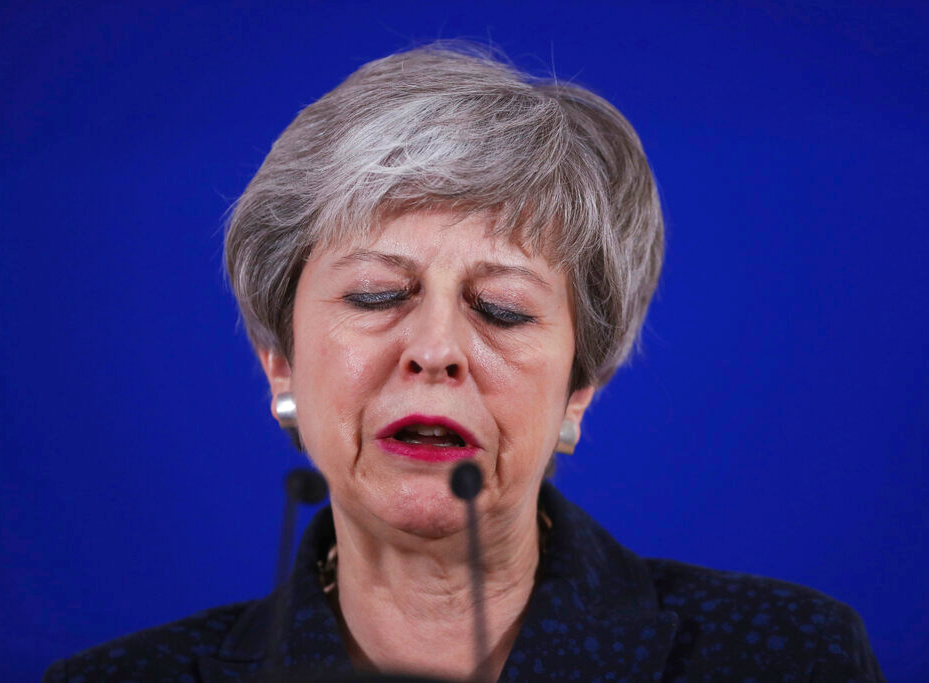Theresa May has shown remarkable resilience in leading the Brexit negotiations over the last two and a half years but there is a now a growing feeling — and not only among her critics in the parliamentary Conservative Party — that it is becoming increasingly hard for her to cling on as Prime Minister.
She is bringing back the withdrawal deal she has negotiated with the EU for a third “meaningful vote” in the Commons next week, even though it was rejected by 230 votes on January 16 and by a margin of 149 on March 12 — there is no guarantee it will be third time lucky.
May had wanted the UK’s date of departure from the EU pushed back from March 29 to June 30.
But on Thursday, the 27 EU heads of government, meeting at a summit in Brussels, told her that Brexit will be delayed until May 22 if she can get her deal through the Commons next week — which still seems unlikely — but only until April 12 if she cannot.
In the latter scenario, she will have to tell the EU what her government intends to do next.
After her return from Brussels, it was reported that Sir Graham Brady, chairman of the 1922 committee, which represents backbench Tory MPs, called on her at 10, Downing Street and apparently told her that “most Conservative MPs now want her to quit”.
Having survived a no-confidence motion she is theoretically safe until December 2019 but analysts say her position is becoming untenable.
On the eve of her departure for Brussels, May spoke to the nation from Downing Street, essentially blaming MPs for the delay to the Brexit process and setting “the people against parliament”.
May controversially blamed MPs for failing to stick to the result of the 2016 vote and told the public: “I am on your side.”
The Daily Telegraph, a Tory supporting paper which does not disguise the fact it wants her replaced by its columnist and former foreign secretary Boris Johnson, called her address from Downing Street “an unwarranted attack on parliament” in its leader comment on Friday.
The paper said “it was disconcerting to hear a Prime Minister attack Parliament in such a way. Appealing to the public over the institution borders on demagoguery, however frustrated she might be in its refusal to do her bidding.
“Moreover, it looks self-defeating because she needs the votes of the MPs she has traduced in order to get her deal through.
“Although she intends to try again shortly, assuming the Speaker rules it in order, another — and surely terminal — defeat looks certain as a result.” The Prime Minister will spend the next few days in a desperate attempt to convince the 10 MPs from Northern Ireland’s Democratic Unionist Party and hardline Brexiteers to drop their implacable hostility to her deal.
Meanwhile, the government is ignoring an online petition, calling for Brexit to be called off altogether, which passed the 2.3 million mark at 6am on Friday.











